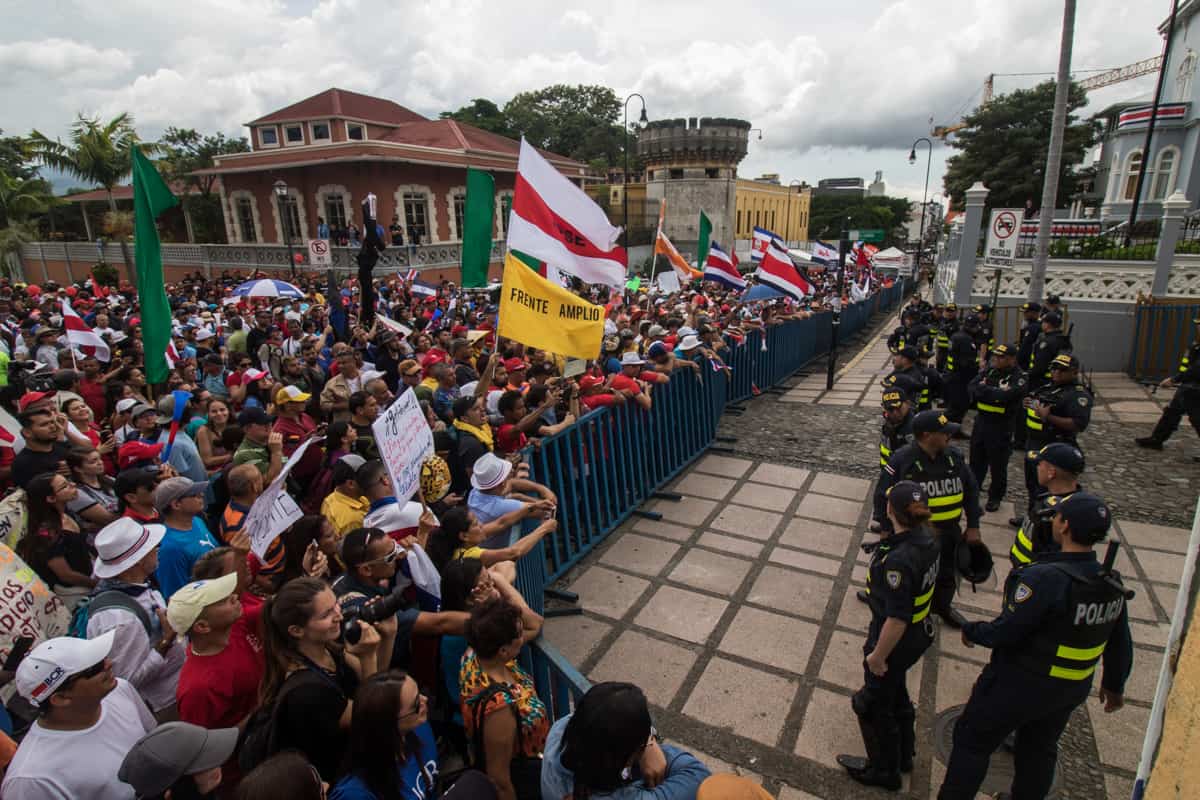Costa Rica’s controversial fiscal reform proposal took a step toward becoming law Friday evening when the Legislative Assembly approved the bill after a lengthy first debate.
The project, Strengthening of Public Finances, was approved with 35 votes in favor, to 22 votes against.
The Legislative Assembly, the country’s Congress, has 57 seats. A simple majority is 29 votes.
The initiative will now be sent to the Constitutional Chamber and other government institutions for further approval.
Public-sector union leaders indicated Friday night that strikes will continue.
Since Sept. 10, demonstrations against the proposed tax reform bill have blocked city streets, impacted the tourism industry and led to confrontations between protesters and President Carlos Alvarado.
“It’s a show of strength,” said Costa Rican journalist and economist David Ching in an interview with The Tico Times last month. “Who has more strength – the unions or the government?
“Most economists agree it’s necessary to do something about the public finances right now.”
The Central Bank of Costa Rica (BCCR) warned there’s a looming financial emergency if the nation cannot curtail its deficit. Law 20.580, Strengthening of Public Finances, is the government’s attempt to avoid an economic crisis through the following key measures:
- The country’s 13-percent sales tax would be replaced by an equal Value-Added Tax (VAT). The VAT would allow the government to begin collecting taxes on services.
- The reform would add a 1-percent VAT to the canasta básica, or basic food products.
- The proposed law would affect income tax by adding higher brackets for top earners.
- The law would limit government spending.
“The tax reform itself, as every tax reform in Costa Rica for like the last century, is an increase in tax, and that’s the main reason there’s a lot of protests,” Ching said. “Everywhere in the world, when you increase taxes, people are unhappy. And people who are unhappy tend to protest. That’s how it works.”
Ching said the taxation of basic goods would impact the greatest number of people. The basic goods are a set of basic necessities that a Costa Rican family needs to survive.
“Usually these goods are exempt, under the pretense that they are important for everyone to have them,” Ching said. “It is putting a higher tax on things we all need. That, of course, affects the working class much more than anybody else.”
Union leaders, Ching said, are upset with the proposed restrictions to government spending. This includes a limit to the required cesantía, or severance pay, for public employees.
The government and President Alvarado have maintained that under the proposed tax-reform, the majority of new taxes would be paid by the richest in Costa Rica.
While strikes and debates will continue, the country moved closer to avoiding a larger economic crisis on Friday.






